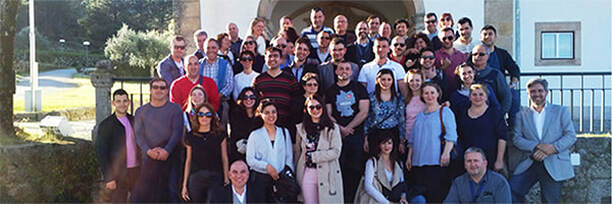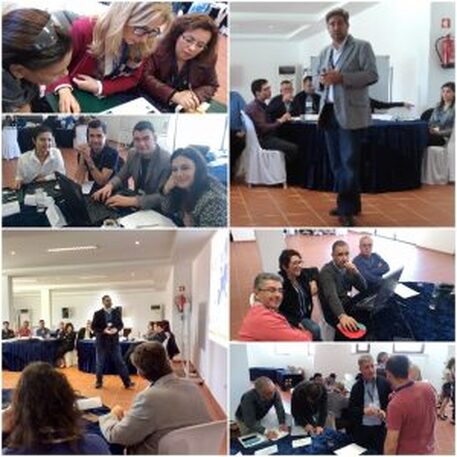PORTUGUESE, ROMANIAN AND TURKISH PRISON SYSTEMS JOIN TO DEVELOP PRISON WORK PLANS
Fifty-two (52) representatives from the Portuguese, Romanian and Turkish prison administrations gathered in Covilhã (Portugal) for one week to share experiences and develop prison work/industries strategies and operational plans under ECOPRIS, a project promoted by the BSAFE LAB, of Beira Interior University.
The second face-to-face short-term staff training event – out of three that are planned under the scope of the ECOPRIS project – took place between the 2nd and the 7th of April 2017.
The event was conducted by the IPS_Innovative Prison Systems team, and started with a kick-off session in which Pedro das Neves shared prison work international practices, trends, and challenges.
As the project manager and the mentor of the different teams over the past months, Tiago Leitão animated the different working sessions that followed.
The second face-to-face short-term staff training event – out of three that are planned under the scope of the ECOPRIS project – took place between the 2nd and the 7th of April 2017.
The event was conducted by the IPS_Innovative Prison Systems team, and started with a kick-off session in which Pedro das Neves shared prison work international practices, trends, and challenges.
As the project manager and the mentor of the different teams over the past months, Tiago Leitão animated the different working sessions that followed.
|
The group of trainees was composed of correctional staff who are either directly or indirectly involved in prison work activities. During the training event, they were challenged to work in small groups aiming at developing the business plan of the ideas for products or services to be produced by inmates in their respective prison systems. The groups were, then, urged to pitch their business plan proposals before a jury and received the respective feedback for improvement.
This training week allowed the participants to share their experiences and practices and acknowledge the challenges and constraints of their counterparts that carry out their jobs in other jurisdictions, as far as prison work and industries are concerned. To learn more about ECOPRIS please visit the project page. |


